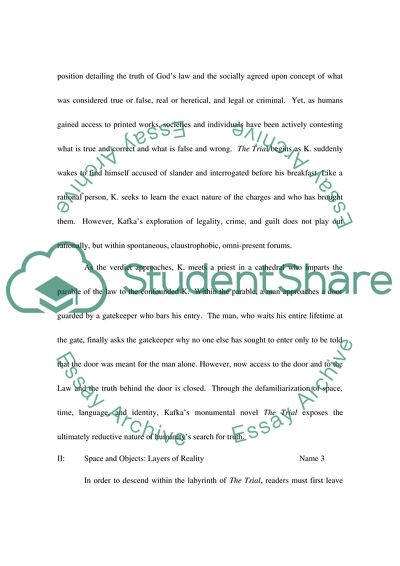Cite this document
(Kafkas Parable of the Law Research Paper Example | Topics and Well Written Essays - 2000 words, n.d.)
Kafkas Parable of the Law Research Paper Example | Topics and Well Written Essays - 2000 words. Retrieved from https://studentshare.org/law/1752365-kafkas-parable-of-the-law-in-the-trial
Kafkas Parable of the Law Research Paper Example | Topics and Well Written Essays - 2000 words. Retrieved from https://studentshare.org/law/1752365-kafkas-parable-of-the-law-in-the-trial
(Kafkas Parable of the Law Research Paper Example | Topics and Well Written Essays - 2000 Words)
Kafkas Parable of the Law Research Paper Example | Topics and Well Written Essays - 2000 Words. https://studentshare.org/law/1752365-kafkas-parable-of-the-law-in-the-trial.
Kafkas Parable of the Law Research Paper Example | Topics and Well Written Essays - 2000 Words. https://studentshare.org/law/1752365-kafkas-parable-of-the-law-in-the-trial.
“Kafkas Parable of the Law Research Paper Example | Topics and Well Written Essays - 2000 Words”, n.d. https://studentshare.org/law/1752365-kafkas-parable-of-the-law-in-the-trial.


